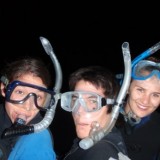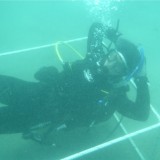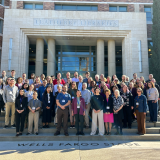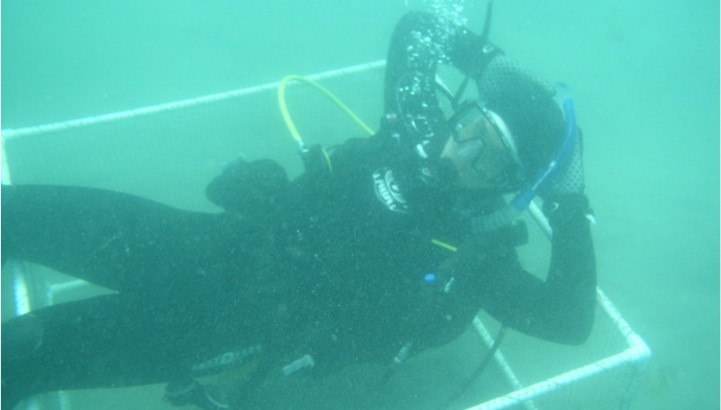
William Wright: predator lobsters, night-diving and undergraduate research
February 12, 2015
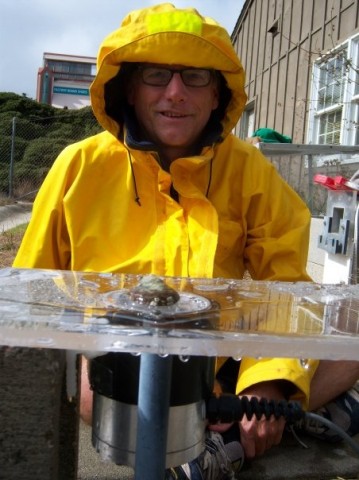
Dr. William G. Wright is Associate Professor of biological sciences in the Schmid College of Science and Technology and he runs the Wright Marine Invertebrate Biology (MIB) Lab.
This research story starts during my sabbatical leave way back in 2009. I talked two Chapman students — John Berriman ’11 and Daniel Goldstein — into taking a research-diving certification course so that we could go under water at night to present yucchy sea hares to lobsters inside and outside the USC Wrigley Marine Science Center.
Lobsters have been protected inside the Wrigley reserve for 30+ years, resulting in much greater numbers. More abundant lobsters means more competition and results in the “easy” food (carrion and mussel) getting eaten, thus forcing the lobsters to turn their attention to otherwise ignored food, like chemically protected sea hares. In essence, protection by the marine reserve transforms lobsters from primarily scavengers of carrion into voracious predators, radically changing the food web of the kelp-bed community.
When an old friend, Daniel Reed (and several of his colleagues), from UC Santa Barbara caught wind of our work, he invited us to try the hypothesis in two reserves he had been studying in the northern Channel Islands. He had the boats and diving infrastructure, so off we went up to Anacapa and Santa Cruz to test the hypothesis. It was tons of fun (hard work, too) diving at night in these out-of-the-way places.
Happily, the hypothesis held up really well, and — voilà — a publication. John Berriman did virtually every dive and analyzed and worked the manuscript in countless different iterations. In the end, it is a cool paper that hopefully will get cited… a lot.
- Kimberly Fuller ’08 (left), John Berriman ’11 (middle) and lab technician Ginny Zachary (right) shortly after they discovered that the reserve lobsters would attack sea hares. This photo was taken in the fall of 2008, and led to John, Dan and I teaming up for a serious data collection effort the next summer and fall.
- Here is John Berriman ’11 taking a break on top of the enclosure that we used to demonstrate that lobsters inside the reserve weren’t just attacking, but fully consuming sea hares.
- This is how many lobsters there used to be. These were the ones that weren’t sold at the market!
About Bill Wright
Bill Wright is an organismal biologist who studies the behavior of marine invertebrates at neurobiological, ecological, and evolutionary levels. He incorporates training from Scripps Institution of Oceanography, Friday Harbor Laboratories (University of Washington), and Yale University into his cross-disciplinary analyses of natural behavior. His current research examines questions about the chemical, and behavioral defenses of sea hares, ecology of spiny lobsters, territorial ecology of intertidal limpets, and non-lethal effects of global warming.
